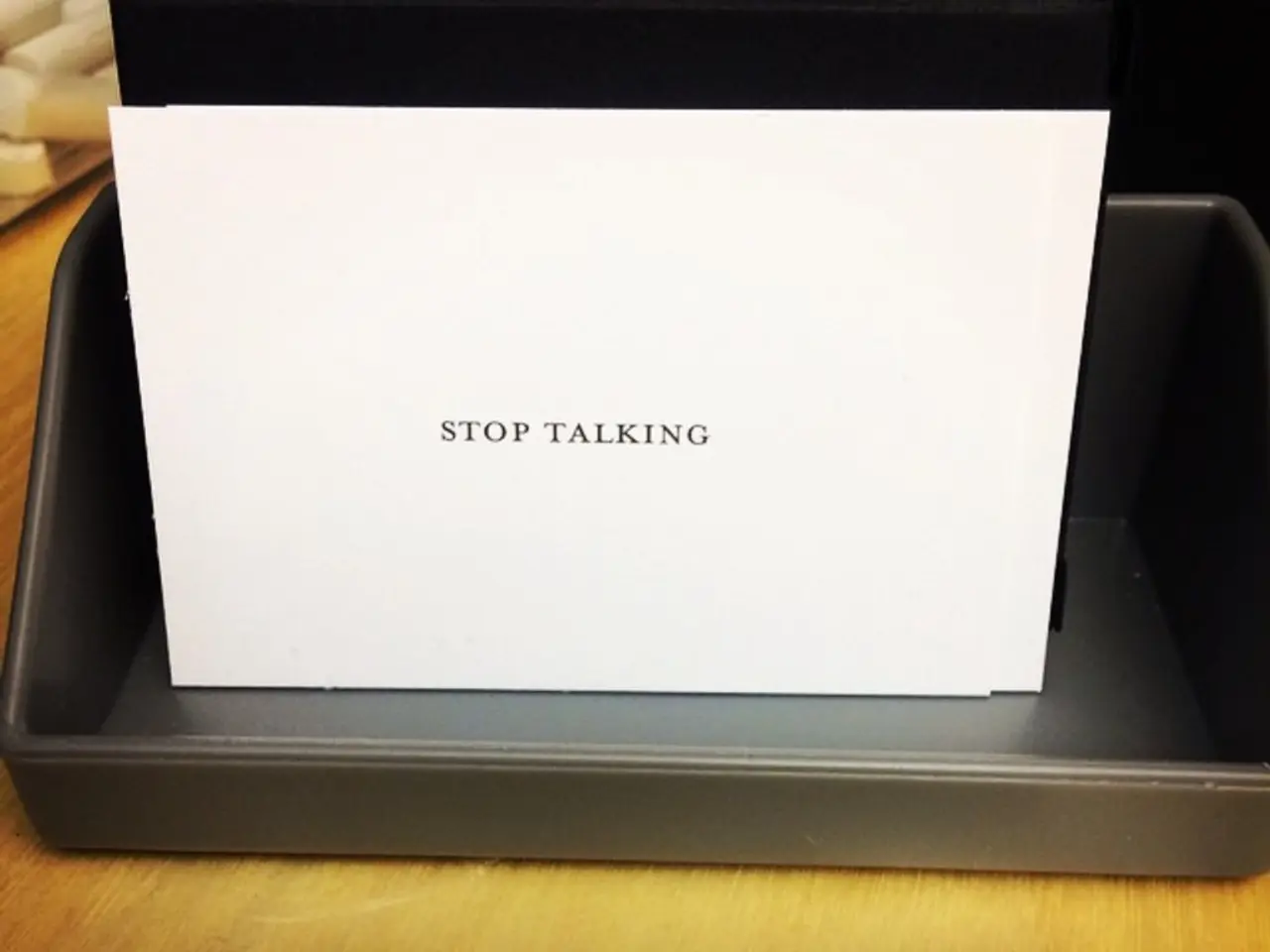Seven phrases that expertly manipulate thought processes during conversation
In the realm of communication, it's essential to recognise the difference between constructive and manipulative interactions. Here are some common phrases and patterns to watch out for, along with tips for maintaining healthy dialogue.
Firstly, it's important to remember that your emotions are valuable data, not distractions. Conversations should foster connection, not confusion. If words are used as weapons, you always have the power to step back and evaluate whether this is someone who deserves your energy.
The phrase "I never said that" can create a barrier in communication, as it denies having said something. Language can also reveal patterns that suggest someone is not engaged in an honest dialogue, but rather in someone else's carefully designed game.
Emotions are an integral part of communication, not obstacles to it. Being upset doesn't invalidate the listener's perspective; it makes it human. However, phrases like "Calm down" can escalate emotions, delegitimize the listener's feelings, and position the speaker as the "level-headed" one.
The phrase "Everyone else thinks so too" is used to invoke the imagined consensus of an entire crowd, putting psychological pressure on the listener. Similarly, "You're imagining things" is a form of gaslighting that invalidates the listener's perception.
Recognising manipulative patterns doesn't mean confronting every manipulator head-on. Sometimes, the most powerful response is simply awareness. Healthy communicators don't withhold clarity; they welcome questions. If someone truly values connection, they'll try to explain instead of weaponizing mystery.
The phrase "I'm just being honest" is often used as a deflection of responsibility, framing harshness as virtue. Genuine honesty doesn't need a disclaimer. It stands on its own without the armor of justification.
The phrase "You wouldn't understand" is a manipulative tactic that implies the listener is too naive, uninformed, or incapable to grasp the issue, placing the speaker in the role of keeper of knowledge. "Calm down" slams the door and locks it from the outside, while a caring partner or friend might say, "Let's take a breath," or "I want to understand what you're feeling."
The phrase "You're too sensitive" is often used as a form of gaslighting, shifting focus away from the speaker's behavior and making the listener question their emotional reactions. The ultimate mind game isn't what they say—it's whether you believe you have to play along.
Trust your instincts. If you walk away from a conversation feeling smaller, confused, or silenced, that's information worth listening to. Manipulative conversations can be subtle, disarming, and sometimes disguised as kindness.
In the world of online publications, articles with titles such as "4 subtle traits of women who attract high-quality men without even trying," "9 rare qualities of a high-value woman, according to psychology," "If you care about style and the planet, these 7 high-end fashion brands should be on your radar," and "I always struggled to say 'no' without feeling guilty until I learned these 8 simple phrases" can be found on eluxemagazine.com. However, the specific authors of these articles are not listed in the provided search results.
Lastly, a trustworthy person will try to clarify a misunderstanding, not erase the listener's version of reality. Healthy communication never shames someone for feeling. It's crucial to remember that open, honest, and respectful dialogue is the foundation of strong relationships.








